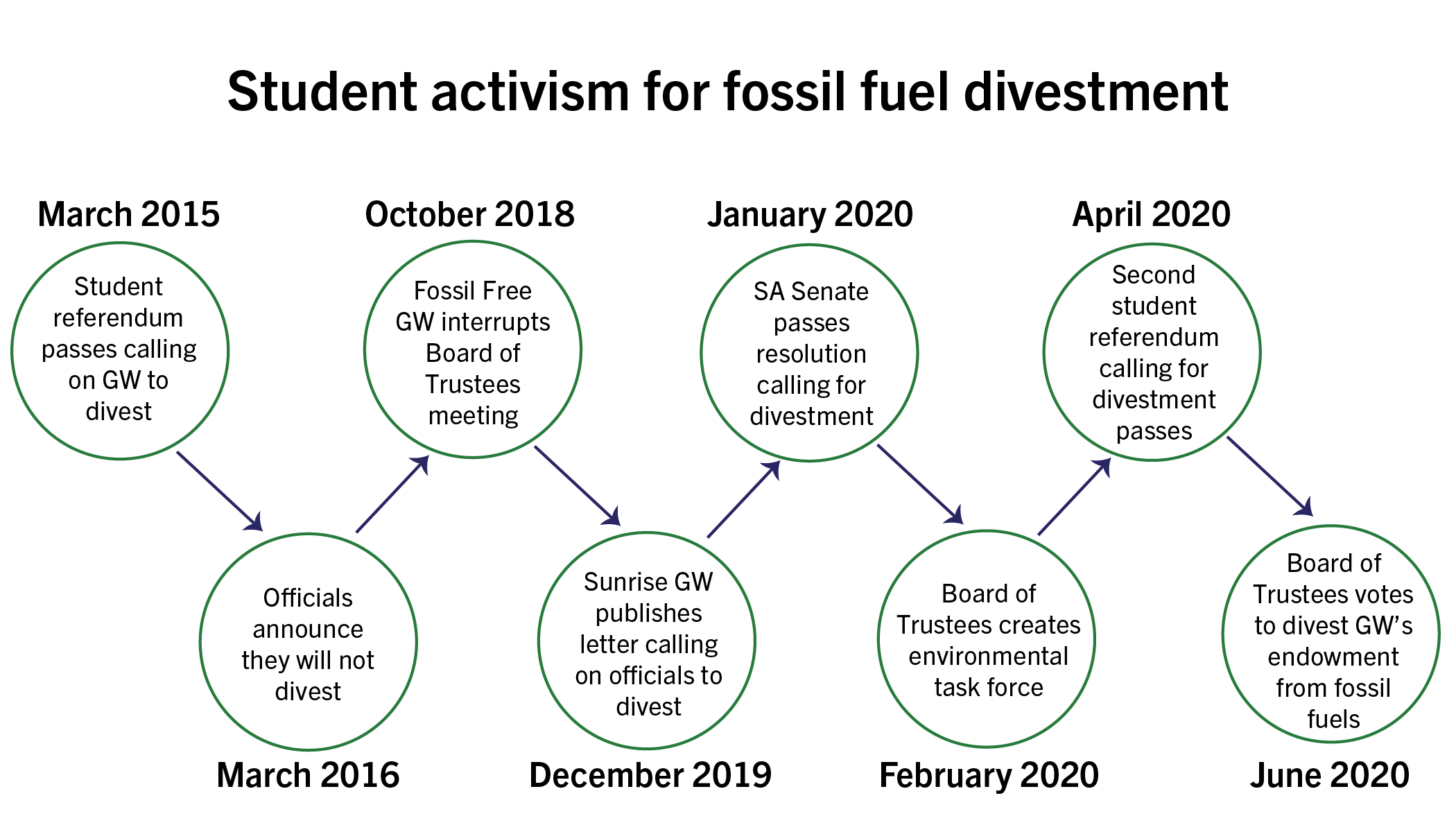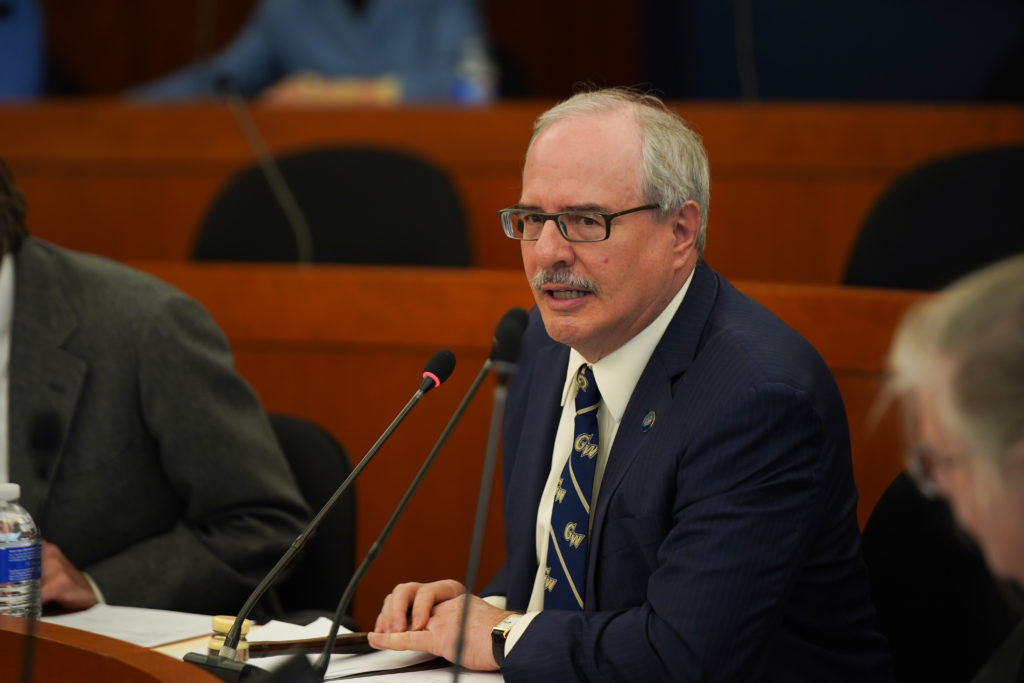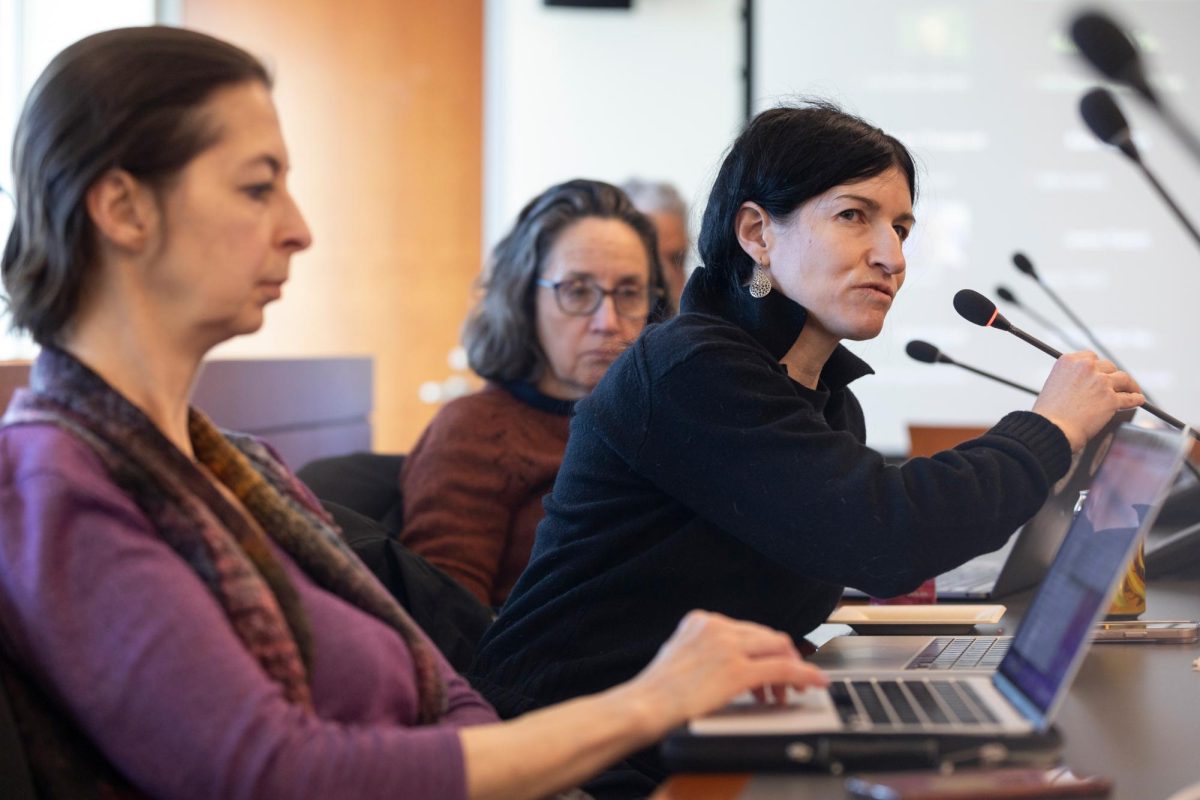The Board of Trustees voted to fully divest GW’s endowment from companies that focus on fossil fuel extraction by 2025 following years of pressure from student activists.
The Board, which met virtually in a closed meeting Friday, adopted recommendations from its Environmental, Social and Governance Responsibility Task Force, which was established in February following a week of student protests in support of fossil fuel divestment. University President Thomas LeBlanc said in an interview Monday that the discussions leading to the decision were “very fact-based” and incorporated the perspective of student activists.
“The administration and the Board always listen to our community and respect and consider the feedback that we’re getting,” LeBlanc said. “And obviously there were very passionate student voices in particular, on this issue, so we certainly heard them.”
The Board also adopted recommendations to immediately halt all new investments in the fossil fuel industry, phase out single-use plastics and commit to reaching STARS Platinum sustainability distinction by 2025. Trustees also voted to accelerate GW’s plans to become carbon neutral by 10 years to 2030 and aspire to remove all greenhouse gas emissions the University has produced since its founding in 1821.
LeBlanc said the ongoing pandemic has thrown a “curveball” at the task force’s work, but the group still worked quickly to reach a conclusion about its charge related to environmental issues.
“They brought in the status of where we are today, both in terms of our operations and our investments,” he said. “They brought in investment advisers, who actually worked with GW now to talk about how we could accomplish these goals. Our entire community played an important role in making this come about.”

Sidney Lee | Graphics Editor
GW’s holdings in the fossil fuel industry total roughly $53 million, and officials have said they have reduced GW’s fossil fuel investments by 89 percent in the last five years.
Trustee Peter Harrison, the chair of the task force, said the five-year timeline will enable the University to avoid major costs as it divests. Divesting by 2025 will “probably” cost GW $1 million or less, he said.
He said the task force received roughly 100 online feedback submissions and held two town halls to discuss the draft recommendations.
“I’m really pleased with the feedback and the general tone and the positive support that we’ve got from the community at large,” Harrison said. “I think it’s always challenging to reach a consensus with such a diverse group, but I feel like we actually made an amazing amount of progress in a pretty short space of time. I believe these recommendations are evolving the University back into a real, true leadership position.”
Harrison said some universities have announced they will divest from fossil fuels but retain holdings in large funds that include traces of investments in the industry.
“We’ve been very clear that we don’t see that as a full divestment and that we aspire to truly be zero,” he said. “So I think that it’s important to really recognize that we are going quite a bit beyond what a lot of schools who claim full divestment have actually set.”
Harrison added that the task force will continue meeting and shift its discussions toward examining GW’s social and governance responsibility.
The Board also approved an institutional statement of beliefs calling on GW to become a role model in combatting “the growing threat of environmental catastrophe.”
“We, the GW community, recognize that climate change may be the biggest threat facing the planet and society today and the future,” the belief statement reads. “We find incontrovertible evidence that humans are having a profoundly negative impact on the climate and the planet.”
Students have been pressuring the University to divest as early as 2015, when 72 percent of students voted in favor of removing fossil fuel investments from the University’s portfolio in a student referendum. Following the vote, officials said they wouldn’t recommend divesting GW’s holdings from the industry.
Fossil Free GW, which rebranded as Sunrise GW in November, has protested at Board meetings multiple times since the referendum’s passage.
The group published a letter in December calling on officials to divest the University’s holdings in the fossil fuel industry. A spokesperson for the group said the letter has received endorsements from more than 2,000 students, faculty and staff as well as from 50 organizations.
The following month, the Student Association Senate passed a resolution calling on officials to divest GW’s endowment from fossil fuels and cut ties with the Regulatory Studies Center, which has experienced criticism for accepting funding from donors like ExxonMobil and the Charles Koch Foundation.
LeBlanc apologized in February after making an “insensitive” racial analogy when discussing fossil fuel divestment with a member of Sunrise GW. The conversation, which was captured on video and shared widely on social media, reignited a push from student activists that led to the task force’s creation a week later.
In April, 85 percent of students voted in favor of a referendum reiterating demands for divestment.
Other D.C.-area schools, including American and Georgetown universities, announced earlier this year that they would take similar steps to divest fossil fuel holdings.








